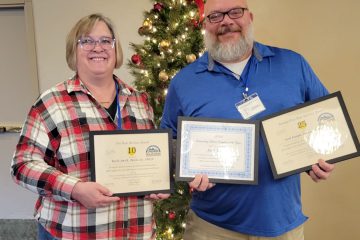WASHINGTON, D.C. – Today, the National Association of Conservation Districts (NACD) sent a letter to the Senate Committee on Agriculture, Nutrition and Forestry outlining the organization’s reaction to The Agriculture Improvement Act of 2018 released on Friday.
The letter applauds Chairman Pat Roberts (R-KS), Ranking Member Debbie Stabenow (D-MI) and members of the committee for the due diligence they demonstrated in drafting their version of the 2018 Farm Bill. Despite budgetary constraints and competing priorities, this bill provides investments into conservation by maintaining overall Conservation Title funding levels. Additionally, the bill increases the Conservation Reserve Program (CRP) while not taking funds from other conservation programs and allows increased grazing on CRP acreage. However, the Senate bill includes language that shifts funding from working lands programs to the Regional Conservation Partnership Program (RCPP), while at the same time authorizing a grant program that would erode the current conservation system with its appropriate checks and balances.
“We commend the Senate Agriculture Committee for their support for conservation,” NACD President Brent Van Dyke said. “Maintaining overall Conservation Title funding is a priority for NACD, and we’re pleased this draft includes strong funding levels to enable conservation delivery at the local level. NACD will continue to work with the committee to ensure this bill encompasses the strongest support possible for working lands conservation programs and improves the locally-led delivery of programs like RCPP.”
About the National Association of Conservation Districts:
The National Association of Conservation Districts is the non-profit organization that represents the nation’s 3,000 conservation districts, their state and territory associations, and the 17,000 men and women who serve on their governing boards. For more than 70 years, local conservation districts have worked with cooperating landowners and managers of private working lands to help them plan and apply effective conservation practices. For more information about NACD, visit: www.nacdnet.org.


